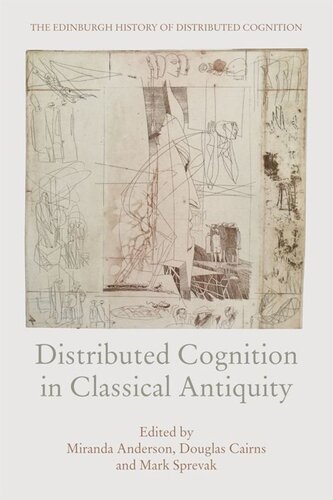

Most ebook files are in PDF format, so you can easily read them using various software such as Foxit Reader or directly on the Google Chrome browser.
Some ebook files are released by publishers in other formats such as .awz, .mobi, .epub, .fb2, etc. You may need to install specific software to read these formats on mobile/PC, such as Calibre.
Please read the tutorial at this link: https://ebookbell.com/faq
We offer FREE conversion to the popular formats you request; however, this may take some time. Therefore, right after payment, please email us, and we will try to provide the service as quickly as possible.
For some exceptional file formats or broken links (if any), please refrain from opening any disputes. Instead, email us first, and we will try to assist within a maximum of 6 hours.
EbookBell Team

4.1
70 reviewsThis collection explores how cognition is explicitly or implicitly conceived of as distributed across brain, body and world in Greek and Roman technology, science, medicine, material culture, philosophy and literary studies.
A range of models emerge, which vary both in terms of whether cognition is just embodied or involves tools or objects in the world. As many of the texts and practices discussed have influenced Western European society and culture, this collection reveals the historical foundations of our theoretical and practical attempts to comprehend the distributed nature of human cognition.
Miranda Anderson, University of Edinburgh, UK.
Felix Budelmann, University of Oxford, UK.
Douglas Cairns, University of Edinburgh, UK.
Christopher Gill, University of Exeter, UK.
Thomas Habinek, University of Southern California, USA.
Luuk Huitink, Heidelberg University, Germany.
George Kazantzidis, University of Patras, Greece.
David Konstan, New York University, USA.
Peter Meineck, New York University, USA.
Diana Y. Ng, University of Michigan-Dearborn, USA.
Hector Reyes, University of Southern California, USA.
Andrew M. Riggsby, University of Texas at Austin, USA.
Courtney Roby, Cornell University, USA.
William Michael Short, University of Exeter, UK.
Mark Sprevak, University of Edinburgh, UK.
Michael Wheeler, University of Stirling, UK.